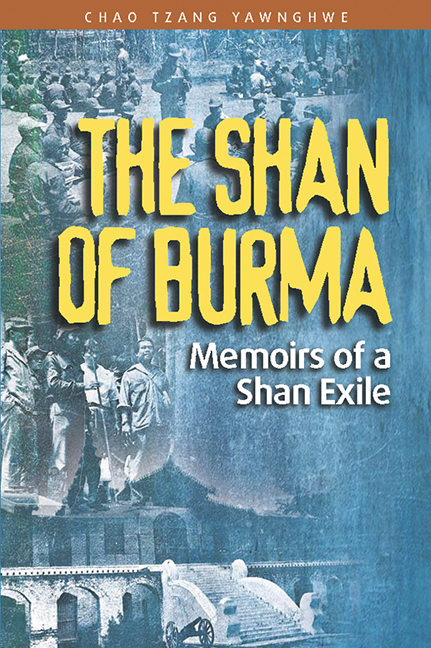Book contents
- Frontmatter
- Contents
- Foreword
- In Memorium
- Preface
- Acknowledgements
- PART ONE AN AUTOBIOGRAPHICAL INTRODUCTION
- PART TWO SHAN-BURMESE RELATIONS
- PART THREE WHO'S WHO IN SHAN STATE POLITICS
- APPENDICES
- Appendix I Historic Decisions and Agreements Prior to Independence
- Appendix II Shan Proposals to Terminate the Opium Trade in the Shan State
- Appendix III Notes on the Film, Opium Warlords
- Abbreviations
- Glossary
- Bibliography
- Index
- The Author
Appendix III - Notes on the Film, Opium Warlords
from APPENDICES
Published online by Cambridge University Press: 21 October 2015
- Frontmatter
- Contents
- Foreword
- In Memorium
- Preface
- Acknowledgements
- PART ONE AN AUTOBIOGRAPHICAL INTRODUCTION
- PART TWO SHAN-BURMESE RELATIONS
- PART THREE WHO'S WHO IN SHAN STATE POLITICS
- APPENDICES
- Appendix I Historic Decisions and Agreements Prior to Independence
- Appendix II Shan Proposals to Terminate the Opium Trade in the Shan State
- Appendix III Notes on the Film, Opium Warlords
- Abbreviations
- Glossary
- Bibliography
- Index
- The Author
Summary
Introduction
For people seriously interested in Thailand, particularly northern Thailand, the subject of opium and the politics of Burma cannot be avoided although in reality not much opium (less than 100 tons, according to official figures) is produced in Thailand, and the politics of Burma and Shan State does not directly concern this country.
Nevertheless, it is impossible to talk about opium and the politics of Burma without mentioning Thailand, and vice versa. There are several reasons. Firstly, Thailand shares a long border (over 1,000 miles) with Burma. Secondly, a variety of ethnic groups (Mon, Karen, Karenni, Lahu, Lisu, Akha, Shan or Thai-yai — the latter named being ethnically Thai) straddle this border and their respective homelands form, since time immemorial, a buffer between the Thai and their ancient foe, the Burmese. Thirdly, these groups while maintaining a close and peaceful relationship with the Thai, have been at war with the Burmese Government for at least twenty years. Fourthly, Thailand serves as a transit and refining area for the 400–700 tons of opium (according to accepted figures though I find this high) from Shan State, and the cities of Thailand (Bangkok, Mae Hongson, Pang, Maesai, Chiangrai, and Chiangmai) are centres from where heroin trafficking is financed and controlled.
This state of affairs poses for Thailand a number of difficult and awkward problems. For instance, regarding opium and drug trafficking, Thai officials and even the government have often been accused by some foreign governments and bureaucrats, and sundry journalists as well, of involvement in the trade, or of not being really serious about stopping the flow of drugs.
Furthermore, because the non-Burmese ethnic groups of Burma enjoyed cordial relations with the Thai, the Burmese Government or Rangoon have for long been extremely suspicious of Thailand. Rangoon would very much like to see Thailand involved in a miniwar with the rebels of Burma.
- Type
- Chapter
- Information
- The Shan of BurmaMemoirs of a Shan Exile, pp. 249 - 252Publisher: ISEAS–Yusof Ishak InstitutePrint publication year: 2010



